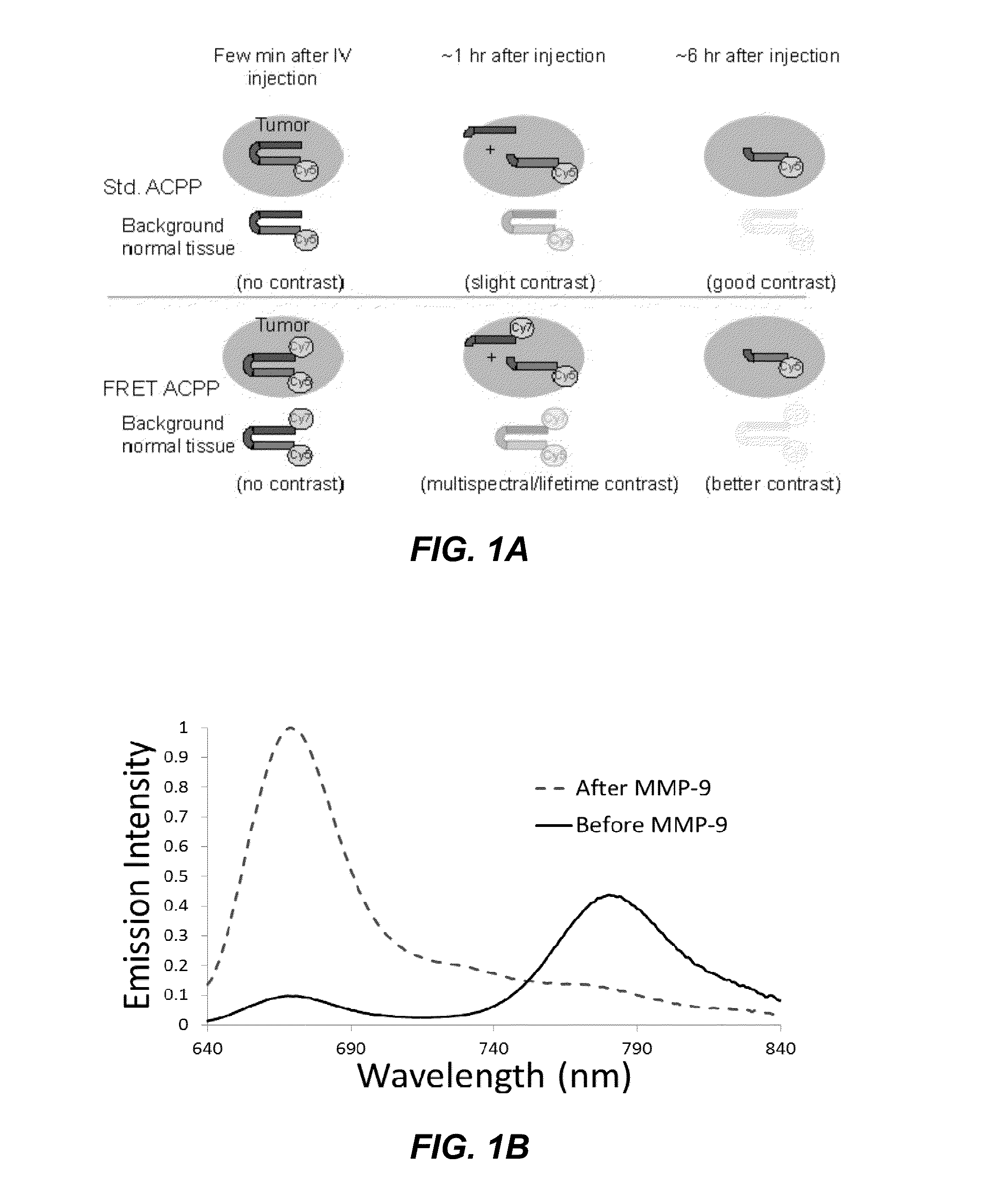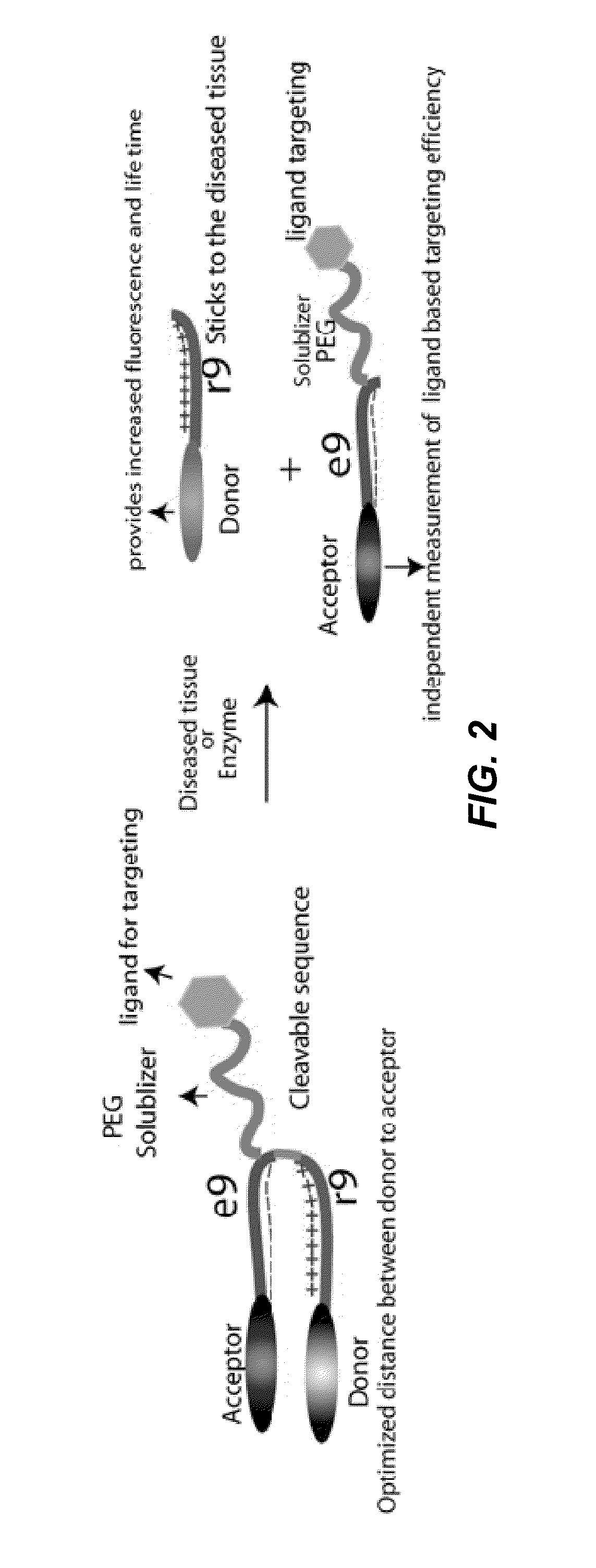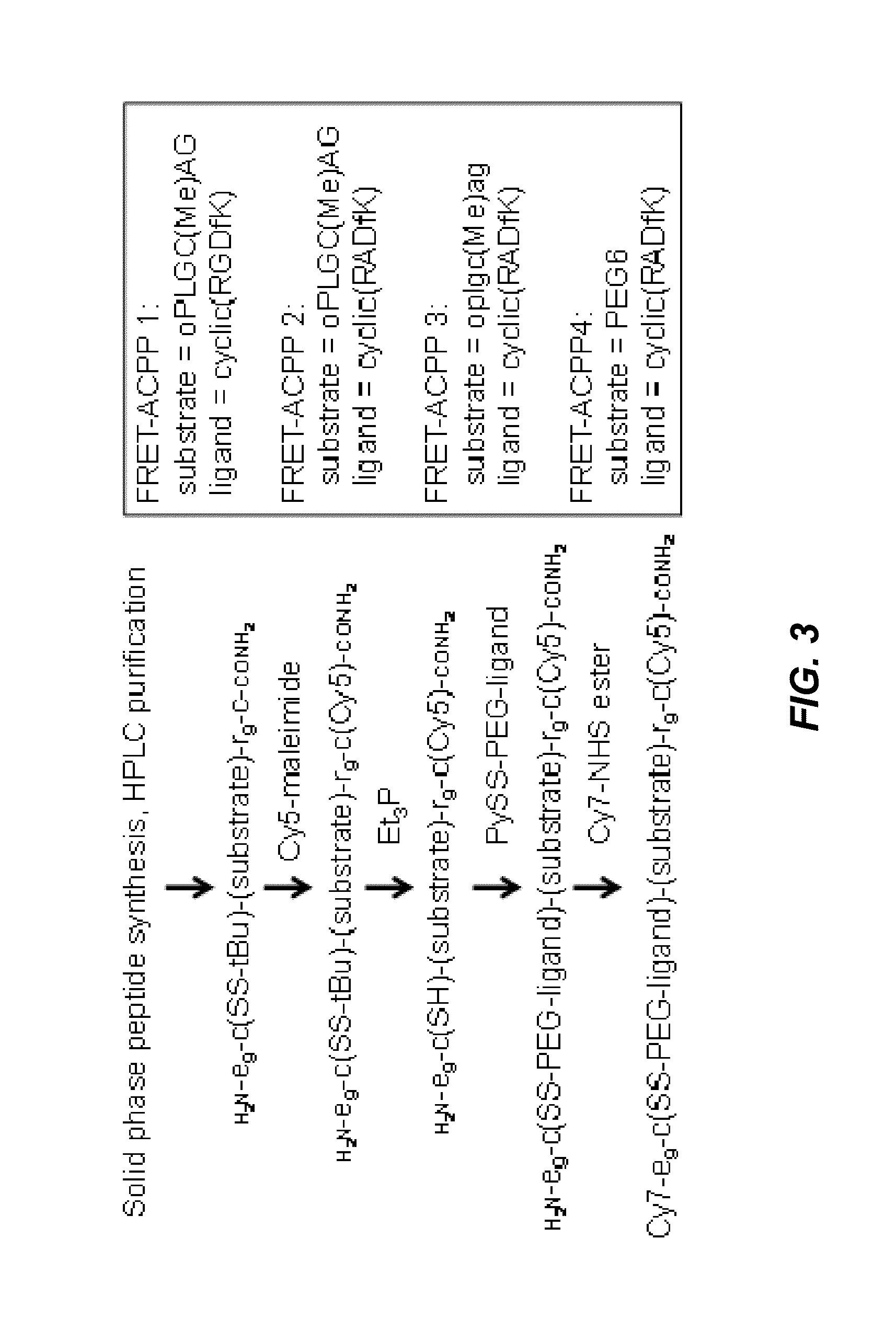Activatable cell penetrating peptides with quenched fluorophores
a technology of activated cells and peptides, which is applied in the direction of peptide/protein ingredients, diagnostic recording/measure, ultrasonic/sonic/infrasonic diagnostics, etc., can solve the problems of inability to in vivo imagine bhq-3, which is too unstable and easily metabolized
- Summary
- Abstract
- Description
- Claims
- Application Information
AI Technical Summary
Benefits of technology
Problems solved by technology
Method used
Image
Examples
example 1
FRET-ACPP Constructs
[0238]The concept underlying the FRET-ACPP imaging constructs described herein is illustrated in FIG. 1. In this figure, a tumor is represented by the ellipse embedded in background normal tissue. In this representation, Cy5 is the sole fluorophore attached to the single fluorophore ACPP construct (top). In the FRET-ACPP construct (bottom), Cy5 serves as the donor fluorophore and Cy7 is the acceptor fluorophore.
[0239]The use of FRET accelerates and increases tumor to background contrast in ACPPs. In single fluorophore ACPPs, both cleaved and uncleaved ACPP constructs contain a single Cy5 fluorophore and are spectroscopically indistinguishable from one another. In this embodiment, imaging contrast between tumor and normal tissue is visible only as fluorescence intensity and depends solely on pharmacokinetic washout of uncleaved ACPP, occurring preferentially in normal tissue. This washout takes time and depends on many factors other than enzyme activity. In FRET-A...
example 2
Targeted FRET-ACPP Constructs
[0240]As illustrated in FIG. 2, the present disclosure provides, in one embodiment, FRET-ACPP constructs containing an targeting ligand attached to the polyanionic domain. In certain embodiments, the targeting ligand is attached via a water-soluble linker, for example a PEG linker (green squiggle). The PEG linker increases solubility, helps prevent static quenching, and improves the emission spectral signature of FRET.
[0241]In one embodiment, the targeting ligand is cyclic(RGDfK), which binds to αvβ3 integrin, a known molecular partner of MMP-2. There is some literature precedent for the ability of cyclic(RGD) ligands to improve substrates for MMPs 9-11, but these examples do not include ACPPs.
example 3
Synthesis of FRET-ACPPs
[0242]FIG. 3 illustrates a method for the synthesis of FRET-ACPPs, in one embodiment. The MMP-2 / 9-cleavable substrate in FRET-ACPPs 1 and 2 was chosen to be oPLGC(Me)AG, where o denotes 5-amino-3-oxopentanoyl, a short hydrophilic spacer. In the uncleavable controls 3 and 4, the linker was either oplgc(Me)ag (corresponding D-amino acids) or PEG6, which is even less cleavable but has the same number of bonds as the cleavable substrate. The targeting ligand was cyclic(RGDfK) or its inactive control, cyclic(RADfK).
PUM
| Property | Measurement | Unit |
|---|---|---|
| emission wavelengths | aaaaa | aaaaa |
| structure | aaaaa | aaaaa |
| fluorescence | aaaaa | aaaaa |
Abstract
Description
Claims
Application Information
 Login to View More
Login to View More - R&D
- Intellectual Property
- Life Sciences
- Materials
- Tech Scout
- Unparalleled Data Quality
- Higher Quality Content
- 60% Fewer Hallucinations
Browse by: Latest US Patents, China's latest patents, Technical Efficacy Thesaurus, Application Domain, Technology Topic, Popular Technical Reports.
© 2025 PatSnap. All rights reserved.Legal|Privacy policy|Modern Slavery Act Transparency Statement|Sitemap|About US| Contact US: help@patsnap.com



